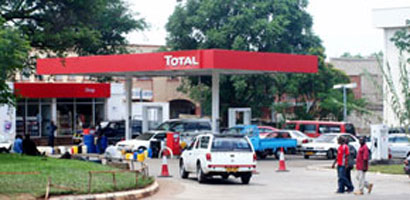Christine Lagarde, International Monetary Fund (IMF) Managing Director was recently quizzed by Members of the Malawi National Assembly who claimed that the institution was coming up with hard conditions on the land locked country.
According to local media reports, Lagarde and her team had an interaction with the members of the Budget and Finance Committee of Parliament in Malawi’s Capital City, Lilongwe recently.
The local Times newspaper reported that the members of the house expressed their unhappiness with the devaluation of the Malawi Kwacha which is believed to have been widely influenced by the IMF. The members of the national assembly said that the devaluation of the Kwacha has resulted in untold misery among the poor Masses.
Soon after the devaluation of the Kwacha by the State President of the Republic of Malawi Mrs. Joyce Banda’s administration last year, prices of basic commodities have almost doubled while salaries of most civil servants and others working for various companies have hardly improved.
Major opposition parties are on record as to have joined forces in questioning the IMF policies on governments and the picture of Malawi economy in particular.
The local Daily has quoted United Democratic Front (UDF) Mangochi North East Parliamentarian Alfred Mwechumu as wondering why the IMF imposes policies on governments instead of allowing “home grown” economic policies to mature and prosper.
Malawi Congress Party (MCP) parliamentarian Joseph Njobvuyalema also told the local newspaper that the real economic situation in the country is contrary to the picture the IMF was painting about Malawi. “It is surprising to hear that IMF representatives saying the reforms are working very well yet the poor Malawian is going through hell and life is unbearable due to the escalating cost of living and abject poverty,” Njobvuyalema told the Times.
Mafunde parliamentarian George Nnesa urged the IMF not to push for more cuts in public expenditure as this could slow down economic activity and further expose the poor to hardships.
However, the IMF chief said the situation in Malawi was better than could have been had IMF not advocated for reforms.
“People seem to easily forget about the economic situation that was there before the reforms started, when people queued for fuel and forex, resulting in falling industrial productivity,”
Lagarde told the local daily adding, “what was the other option (to devaluation) when overvaluing the currency meant excessive loss of reserve amid massive import needs but without adequate reserves? We examined the situation and looked at several factors and the direction the economy was taking and we recommended the necessary policy measures.”
Other questions were on whether the IMF programs have worked elsewhere given the general perception that such programmes hurt economies instead of resuscitating them.
But Lagarde gave examples of Russia, Ghana and Seychelles where similar economic reforms had initially been widely disapproved by locals but later produced desired results.
“Most countries are now doing similar programmes; reducing public expenditure while building reserves. We had a similar programme in Seychelles where they cut expenditure and massively devalued their currency resulting into initial high inflation before the situation improved,” she said.
Former State President of the Republic of Malawi Professor Bingu wa Mutharika refused to devalue the kwacha, arguing it was going to trigger inflation and hurt the poor. He had fixed the exchange rate in 2005 at K150 to U$1.
President Joyce Banda, who came into power following the sudden death of Mutharika in April 2012, devalued the currency by 49 percent against the US dollar in May, consenting to a key demand of the IMF to secure a resumption of desperately needed aid.

.jpeg&w=60&q=100&h=60)




.jpeg&w=60&q=100&h=60)





